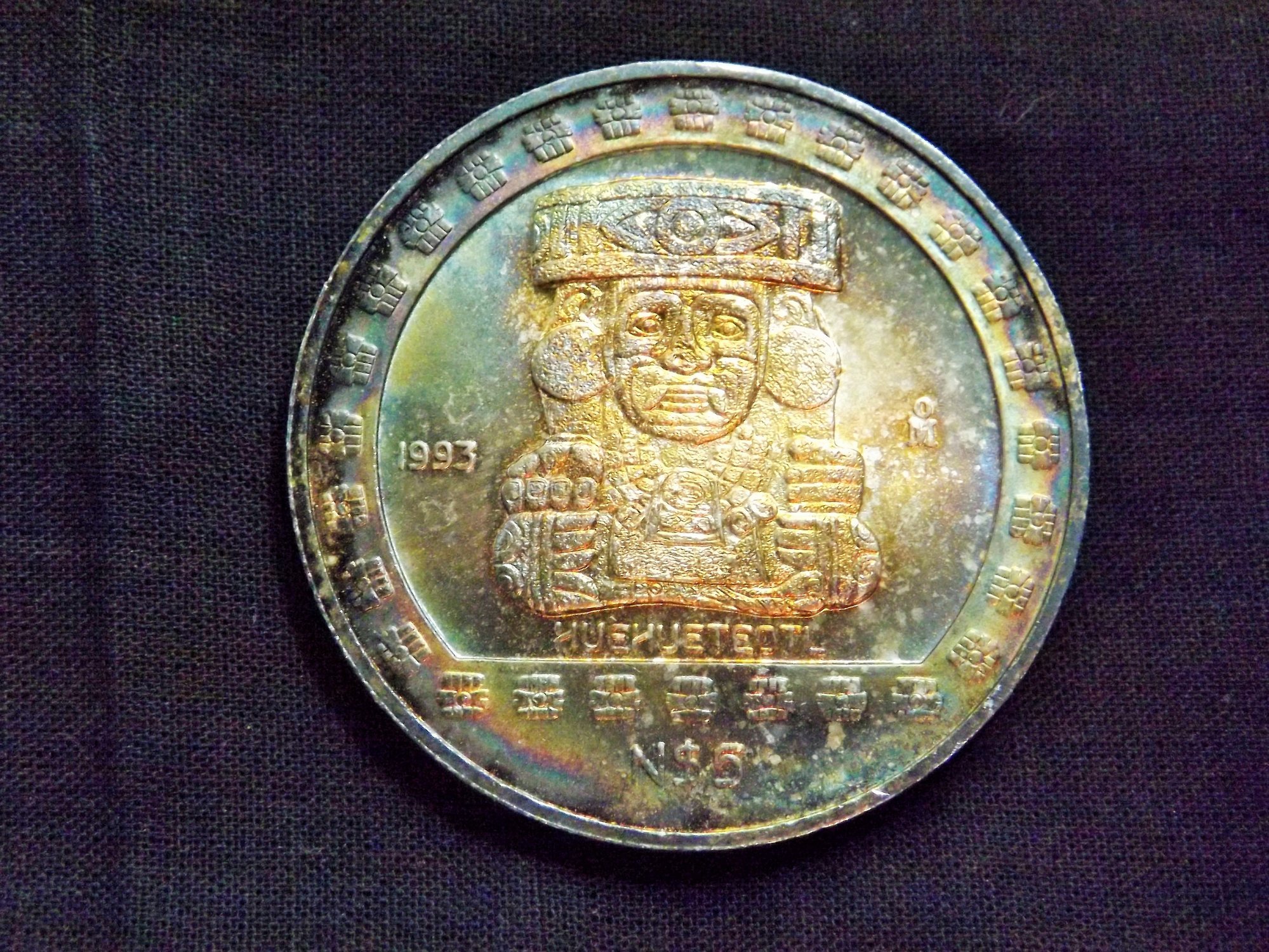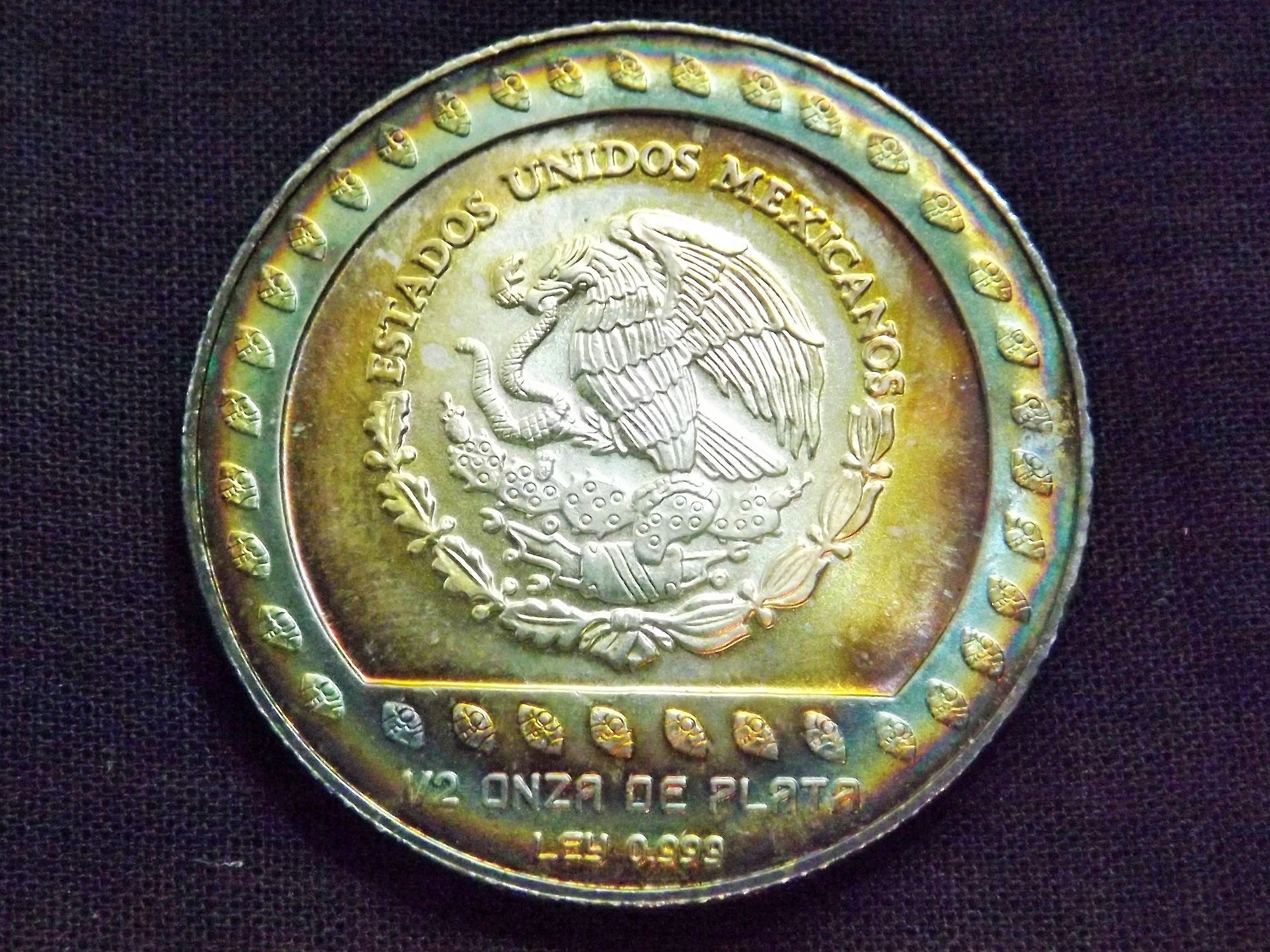Acetone and finger prints and PCGS? Help!
 Spartcom5
Posts: 399 ✭✭✭
Spartcom5
Posts: 399 ✭✭✭
Hey guys. Sort of annoyed right now. A week ago I went to a coin show with my 1902 S Morgan to get some opinions in person on it before I send it in to PCGS. Everyone said easy AU at least. That's great however...... one of of the dealers popped my coin out of the plastic slip and before I knew it he laid his finger right on the surface of the coin. Needless to say I was horrified. It's been a week and upon very close observation I can make out a faint finger print on the Morgan's cheek. Obviously I don't want to leave it there as it will most likely tone. I want to put the coin in acetone for around 30 seconds both sides and hopefully remove it. However, I heard PCGS can detect acetone treated coins and consider it an altered coin? Is there any truth to this statement? Am I safe to use acetone before sending it in to get graded? Any info would be great guys thanks!
Comments
Acetone will not harm the coin. Soak it as long as you want. PCGS will not know or care.
ditto......... if you are concerned rinse it in distilled water and gently pat dry with soft cloth.
What should I do after I soak it? Some say just holding it whilst letting the acetone evaporate is the best or I could pat with a soft cloth, either is fine I assume?
It will air dry fast enough, but you can pat it dry if impatient.
“In matters of style, swim with the current; in matters of principle, stand like a rock." - Thomas Jefferson
My digital cameo album 1950-64 Cameos - take a look!
Acetone soak will not harm your coin, nor will it be detectable or considered altering. Acetone removes organics. I would give it a good soak, rinse with pure alcohol, flush under running hot water and let air dry. One caution... the longer you leave the print, the more likely the acids in the finger oils will etch the surface of the coin... Get busy. Cheers, RickO
Don't feel bad, this you can get off with above notice. I had a friend several years ago, show a better date saint at a show and the dealer dropped it, putting a bad rim dent in it.
I routinely acetone coins before I send in to be graded. It's surprising sometimes when I get a bit of PVC green I hadn't noticed. Never had a problem!
I assume the dealer then bought it at full price since he damaged it?
Ricko - warm tap water would have dissolved constituents (like lots of chlorine) in it that might get stuck on the coin and over decades could affect it. So recommend distilled water if you want to rinse, but acetone is highly volatile so probably best to stop there.
Best, SH
Acetone is volatile enough that it will evaporate quickly and completely from the surface of any coin. Not only will PCGS not be able to detect such a treatment, but even if they could, PCGS would not care if you put acetone on your coin in an attempt to remove oils from a possible/potential fingerprint.
However, I would not pat dry after acetone as this accomplishes nothing other than potentially adding more hairlines to your coin. If you are truly concerned then you can place the coin in acetone then place it into distilled water then into a new dish of acetone before removing it to air-dry. The air-dry time will be very short and might be accomplished while you are still holding the coin with coin tongs or by the edges between your gloved fingers.
In honor of the memory of Cpl. Michael E. Thompson
I doubt acetone will take it off if it has already reacted, but give it a try.
Try warm DISTILLED water. Rinse with acetone, then again in warm DISTILLED water. Hold the coin by the edges over a sink and pour a small amount rubbing alcohol over both sides. LEAN it up against something to dry.
I've been getting mixed opinions on what I should rinse with after soaking in acetone.... If I use acetone or distilled water to rinse aren't either of them fine? Also, rinsing literally just means pouring a little bit on the coin while holding it correct?
Essentially correct, except acetone can leach oils from the skin and deposit them on the coin if you're not careful. If you have brass forceps or you're handy with chopsticks, pouring a little fresh acetone over the coin will serve to rinse it too. For a final rinse, my preference would be the rubbing alcohol. It's a less aggressive solvent and since it's a health and beauty product, it's likely to be free from contaminants.
Isopropanol, acetone and water...none of them will harm the coin on all their own (assuming we are not writing about copper). However, the nature of each solvent is different and you can leave impurities behind on the surface of the coin if you rinse improperly. That is why I suggest acetone-water-acetone (all clean and in clean dishes). It is the most straightforward approach and follows the KISS (Keep It Simple Stupid) approach.
Please note that I am not inferring anyone here is stupid; rather, I am a scientist and we would use that mantra quite often in lab.
In honor of the memory of Cpl. Michael E. Thompson
Thank you to everyone! I did it and the grimy prints are....... gone! Soaked each side for about 30 seconds and rinsed each side off with more acetone whilst being very careful. To be honest the coin looks better than it did when I bought it. It's sitting in a clean safe plastic flip, not PVC. Ready to be graded! I didn't use any distilled water.
Never letting him touch my coins again lol.
You're getting mixed opinions because they all work well. The big key is no rubbing!!
Wash hands to get potential offending substances neutralized. In addition to acetone, hardware stores have xylene and toluene which are stronger. "Restore" I have found useful for coins, smells like turpentine and works without affecting toning.
i'm glad you got to it in time
I worked in what amounts to a "kilo lab" situation for many years. Over time, our use of acetone was municipally regulated down to a bare bones level so out of necessity we migrated over to using ethanol when possible for the same purpose; that is cleaning and drying of glassware. Isopropyl alcohol serves the same purpose and is cheaper and easier to come by. I did discover however that is is not friendly towards airtites, but ethanol is. A lot of coin things are easier when one has access to the wonders of a chem lab.
I full agree
These are word of wisdom!
You'll be ok I don't like when I see that I see it all the time. I buy a lot from dealers and some of the coins I buy from them they just look at them as bouillon, I think they are better then that. But they do just that when counting them they put there fingers all over them, I just told one two days ago to please don't put you fingers on the tone one he just laugh at me and was putting his fingers all over them. her are the coins.

Hoard the keys.
Well done Spartcom5.

My YouTube Channel
You can put toned coins in acetone?????
I agree with gloved fingers, the acetone soak with a little agitation, not touching the glass container, every so often. Rinse in distilled water, again with a little agitation. I don't pat dry. After the water rinse I lay it on a clean white T-shirt, no fabric softener used, and gently heat with a hair drier. Flip it over and heat again. The heat and air flow will dry it quickly with no dust or other airborne stuff settling on the surface. Good luck.
"You can put toned coins in acetone?????"
@oldstandard.. Yes... acetone will not affect the non-organics... Cheers, RickO
That theoretic about finger oils being redeposited is just that - and this comes with someone who has some oily but frequently washed skin. If you wash your hands with mild detergent and touch the coin edge, little ill will happen = not a problem. Although isopropyl alcohol is nice to have, there are frequently contaminants in it as well (eg Witch Hazel). I frequently will just tamp the surface with towel and then I just rinse in mild soap and lots of clean water and tamp that dry.
Tamping with a high nap white CLEAN cotton towel will not scratch surface as this by definition is NOT wiping or abrading coin surface so does not leave marks. Very inexpensive and effective.
As an addendum: some apparent surface issues like PVC actually do involve mild interaction with the metal surface/interface of the coin. I have seen what appears to be toning but is actually a variant of this to be affected. Stable oxidation/toning of coin surface is not affected as per above posts.
Well, just Love coins, period.
Plus it is not good to "save" the acetone or other solvents by pouring the used product back into the bottle, the residue could show up on the surface on later dips I have noticed.
For my own info, is the acetone referred to here simply acetone from the hardware store? I believe it is.
Thanks for the information.
Successful transactions with : MICHAELDIXON, Manorcourtman, Bochiman, bolivarshagnasty, AUandAG, onlyroosies, chumley, Weiss, jdimmick, BAJJERFAN, gene1978, TJM965, Smittys, GRANDAM, JTHawaii, mainejoe, softparade, derryb, Ricko
Bad transactions with : nobody to date
One in the same.
To the OP, is this the same coin you posted about a month ago? I recall you had already received some solid advice on the coin, so just curious why you are going after 6th and 7th opinions. Increased handling increases the chances for stuff like this to happen.
When do people use an ultrasonic cleaner and what solution do they use with it?